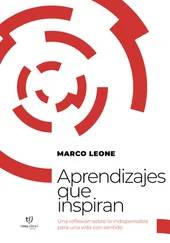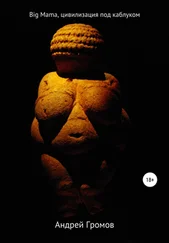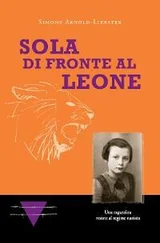Vukota spent weeks trying to find a job waiting tables, but at the time no one seemed to need staff. Albert grinned, ha, you Bosnians , making life even tougher. When Albert was around, Vukota couldn’t forget for a minute that he was on the edge of destitution, that little by little the ground was being pulled out from under him, the day not far off when he wouldn’t even be able to buy food. He wasn’t capable of becoming a waiter, but worse still, he hadn’t even become a Jew, or he had never been that for longer than the moment it had first occurred to him that Grandma Rina might save his neck. In any case, Albert’s ha, you Bosnians , already sounded like a grenade exploding in the distance, and with every new ha, you Bosnians , it drew ever closer and louder. One day it would go off right here, beside him, and that ha, you Bosnians , would then require an appropriate response. And what might an appropriate response be? Vukota didn’t know, except that if there wasn’t one, he increasingly had the feeling he’d rather smack Albert’s ears than find a million dollars in the street.
This could be something for you , Albert put the newspaper down in front of him. It was open to the Help Wanted page, there was an ad, something about a musical comedy, a film studio looking for young men and women who could sing, preferably from Eastern Europe. Vukota silently took down the number, making out like he didn’t care, while in reality his every muscle was dancing with joy. He hadn’t even called and was already imagining himself pulling up in front of the Hilton in a sporty Mercedes, making his way through a cordon of chicks who were passing out all over the place, like young birches felled by Jehovah’s breeze. Then he’d come visit Albert in this dank room, take a fat wad of dollar bills from his pocket, slap him on the forehead with it, and say, ha, we Bosnians .
The voice at the other end of the line had already picked up, and Vukota hadn’t even got around to being surprised with himself because, hell, for the first time in his life he’d become something, and it was because of Albert; in a fleeting flight of fancy he’d become the worst a man anywhere on the face of the earth could be — he’d become a Bosnian, he’d become we Bosnians . Luckily he wasn’t aware of it, and calmly answered their questions: yes, he’s from Eastern Europe, from Bosnia and Herzegovina, you know, a country in Eastern Europe; yes, he was an excellent singer, he used to have his own band, what do you mean where did he have a band? Eastern Europe of course; it was a punk band, but he knows how to sing Bosnian songs too, no problem at all. .
A few hundred guys and girls were there waiting outside this upholstered green door. Everyone was given a number and got called in according to some system, at first one at a time, and then someone worked it out that the audition would never end, so they started going in five at a time. Listen to those numbers will you, the number 676 surreal to Vukota, all of a sudden everything seemed different from how he had imagined. Instead of hustling his way to becoming a Jew, he had hustled his way to a number.
Fourteen hours later, a fat black-haired secretary squawked in English: 675 to 679, if you don’t get in here now, you’ve missed your chance . He pushed his way to the door, holding his number victoriously above his head. Three guys went in with Vukota, two of them were Russians, no doubt about it, the other one looked like a Romanian, and then there was a girl who was really tall, blond hair and blue eyes like in that story by Isak Samokovlija. At a table sat three men, the one in the middle looked like the director because he was wearing glasses like Steven Spielberg’s, at least that’s how it seemed to Vukota. The director pointed to five chairs, they sat down, he looked at them, rolled his eyes, the fat secretary squawked break time! Vukota started to stand up, sit down! Vukota sat back down. The director and his assistants headed out the back door. The fat secretary followed them.
For half an hour the five of them didn’t budge from their chairs. The girl held her hands in her lap, looking at the floor. She didn’t move, she almost didn’t breathe, she was tense and looked like she was remembering a song she had heard long ago, one she’d start singing the second she remembered it, she’d just start singing, out loud, not concerned with who was around or where she was. The two Russians really were Russians, and motormouth Russians at that; first they whispered stuff to each other, past Vukota who was sitting between them, then they started laughing and talking real loud, one second Vukota was taking spray on the right cheek, the next on the left. He stared straight ahead, as lost as he would ever be in his life, as far from home as anyone had ever been. He thought how perhaps it would’ve been better if he’d never remembered Grandma Rina, if Grandma Rina had never even existed, and that if it had occurred to him to leave couldn’t he at least have done it the way other people did? How did other people leave? He didn’t want to think about it, but he was sure they must’ve left better than he did, because if they’d left like him, no one would have gone anywhere, everyone would’ve remained in the city waiting for their grenade or bullet.
To keep from bursting into tears at the terror of his fate, Vukota did what was always helpful and healing in these kinds of situations: Out of the corner of his eye he started spying on the girl; you know, the standard drill — I’m a man and I’m looking at a girl. She really was beautiful, one of those ones you didn’t have the guts to fall in love with, but you never got the chance anyhow, because you only ever met them in passing and never got to introduce yourself, but you would see them and ache, that real deep-seated ache somewhere in your chest. You try thinking about them and you always think, they can’t be someone’s girlfriend, because you only see them when they’re on their own, and you can’t imagine anyone who’s deserving of such a girl.
It was like she couldn’t hear the Russians; she focused on her spot, trying to remember her song, wound tight as a string on a guitar — not on a guitar! — maybe on some other instrument, one Vukota had never laid his hands on, maybe a string on a zither. Yeah, she was as tight as a string on a zither, and under a spray of Russian spit Vukota tried to work out what country she was from, but God help him it was really like there was no such country in the whole of Eastern Europe. Frankly, there was no such country in all the Europes of this world, eastern, western, whatever. Christ, what kind of country lets a girl like her end up number 678 in some distant Israel.
He stopped thinking about his fate, in fact, he was ashamed his own fate had even crossed his mind. From the get-go he should’ve been playing the role of the hero, saving this blond beauty — this daughter of Samokovlija’s imagination, this one-off blond Jewess — from general servitude, not to mention this audition. He thought how good it would be were he to get up right now, go over to her, take her by the hand, and lead her out, but in his head there was this pathetic little Vukota, a little scared monster, all panicked, telling him for God’s sake don’t do it, you don’t go up to any woman like that, she won’t stand up, you don’t pull her by the arm like you want to rip it out of her shoulder, like you’d pluck a star from the ceiling of a kid’s room that’s not your own. Vukota understood what the little monster inside was telling him: You go up to that girl and grab her by the arm — you’ll end up in the nuthouse. Crazy, and not even a Jew.
He tried to look away from her. The Russians kept the spray coming and he faced the other direction, hey, the little Romanian, he’d completely forgotten about him. The Romanian had his mouth open like he was a bit retarded, gazing transfixed at the beauty. Have a good gawk, numb nuts , said Vukota. His own voice gave him a fright, but no one had heard it. The Romanian definitely hadn’t, he was in a daze, zoned out to everything happening around him. Thank God we didn’t have that kind of socialism, thought Vukota, and thus comforted, turned back to the girl. Left and right it rained and thundered, the Russians not quitting for a second, but it was like in those songs from after the Second World War, rain or thunder couldn’t stop Vukota: He stood there in a drenched raincoat in the middle of a destroyed city, a city of which there was nothing left, the rain just poured down on Brest that day, as it once had, and Vukota wanted to know her name, to speak it right now, and hell, loud! He wanted her to finally turn around, he wanted to know where she was from, and to tell her: you got it, sweetheart, that’s where we’re going. I’ll tear up my number, you’ll tear up yours, and we’re off to your whatthehellwasthenameofit country. There in your hometown, we’ll meet again as total strangers .
Читать дальше












